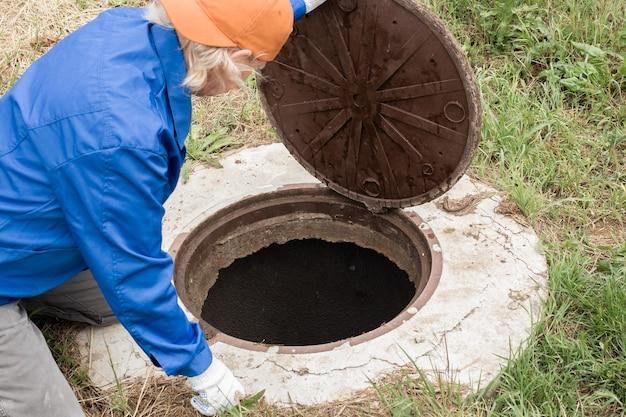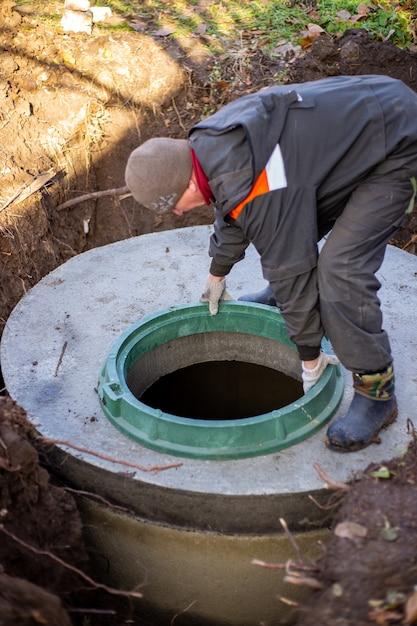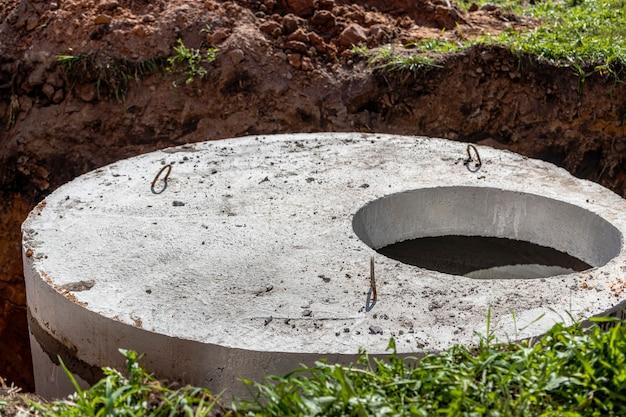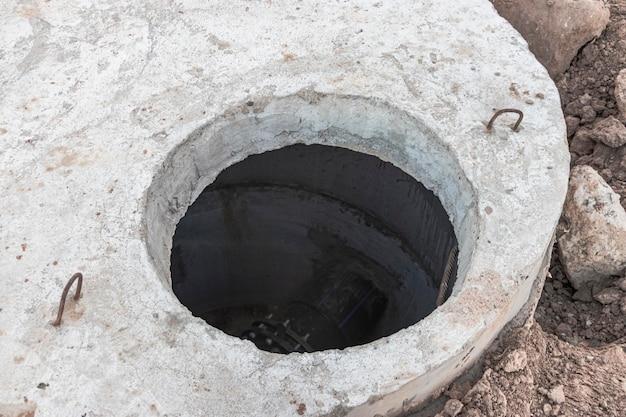Have you ever experienced a clogged plumbing system or noticed a funky smell coming from your bathroom or kitchen? Those can be some of the signs of a backed-up septic tank. Septic backups are not only unpleasant, but they can also pose serious health and environmental hazards. There are several reasons why a septic tank might back up. It could be due to a clogged drainage field, overburdened septic system, or even a failing leach field. In this blog post, we’ll explore what happens when your septic backs up and provide some tips on how to deal with the situation. We’ll also cover some common questions regarding septic backups, such as whether it’s safe to stay in a house with sewage backup, and how to fix a septic tank that backs up when it rains. Keep reading to learn more!
What Happens When Your Septic Backs Up
If you’ve ever experienced a backed-up septic system, you know it’s no laughing matter. It’s a stinky, messy, and costly problem that you want to avoid at all costs. However, that doesn’t mean we can’t have some fun exploring what happens when your septic system backs up.
The Stench Will Overwhelm You
The first thing you’ll notice is the smell. It will be overpowering, and it’s hard to describe. It’s a mix of rotten eggs, sewage, and death. Yeah, it’s not pleasant. You’ll have a hard time being anywhere near your house without immediately wanting to run the other way.
Your Plumbing Will Stop Working
When your septic system backs up, your plumbing will stop working. That means that your toilet won’t flush, your sinks won’t drain, and your shower won’t empty. It’s a problem that affects every aspect of your home life, and it’s not pretty.
Your Yard Will Be a Mess
Your yard will also be affected by the backed-up septic system. You might notice soggy patches of grass, and the ground will be mushy and uneven. It’s not going to look pretty, and you’ll have a hard time enjoying your yard until the problem is fixed.
Your Wallet Will Take a Hit
Fixing a backed-up septic system isn’t cheap. It can cost thousands of dollars to get everything back up and running. The longer you wait to address the problem, the worse it will get, and the more it will cost you.
In conclusion, when your septic system backs up, it’s not a pretty picture. The smell will be overpowering, your plumbing will stop working, your yard will be a mess, and your wallet will take a hit. It’s a problem you want to avoid, but if you do experience it, make sure you get it taken care of as soon as possible.
Septic Backup After Washing Machine
If you have ever experienced a washing machine backup, then you know the nightmare that can follow. The water backs up, and before you know it, it’s all over the floor – a complete mess! Once your washing machine starts backing up, it is only a matter of time till your septic starts acting up.
The Problem
The problem with washing machine backups is that they can pose a serious threat to your septic system. The suds and chemicals from the detergent can wreak havoc on the naturally occurring bacteria in your septic. These bacteria help to break down and digest the waste in your septic, but if the detergent kills them, your tank will start backing up.
The Solution
One of the easiest solutions to prevent septic backups is to limit the amount of detergent you use. A small amount of detergent can go a long way, so try using a hot water setting instead of a heavy-duty cycle.
Another thing you can do is to switch to a low-sudsing detergent. These detergents contain fewer chemicals, making them easier on your septic system’s bacteria. If the backup is severe, call in the professionals to help unclog the drain.
In conclusion, washing machine backups can cause a whole host of problems, including septic backups. By being mindful of the amount of detergent you use and switching to a low-sudsing detergent, you can help protect your septic system. If the backup is severe, call in the professionals to help clear the blockage.
What to Do if Your Septic System Backs Up
So your septic system decided to take a break, and it’s backing up all over the place? Don’t panic; you’re not alone. Thousands of homeowners face this nightmare every year. But what should you do if your septic system backs up?
Step 1: Assess the Situation
When you notice your septic system has backed up, the first step is to access the situation. It can be tempting to flush the toilet or run the faucet, but please don’t do that. You’ll only make the problem worse if you don’t assess the situation.
Step 2: Call a Professional
If you don’t know how to fix the problem, it’s time to seek professional help. Calling a professional plumber or septic service technician to fix your septic backup is always the best option. They’ve got the tools, experience, and all the knowledge required to resolve the issue. Don’t try to fix the problem if you lack experience; it can lead to further damages.
Step 3: Mitigate the Damage
Now that you have a professional on the way, it’s time to mitigate the damage. The best way to do this is to shut down the water supply to your septic system. This is usually possible by connecting the plumbing in your home to your municipality’s sewer system or by using an external valve.
Step 4: Find the Source of the Problem
A septic backup can be caused by many things such as clogged pipes, a full septic tank, or a damaged drain field. Once the professional arrives, they’ll carry out an inspection to identify the source of the problem and take appropriate steps to fix it.
Step 5: Plan a Regular Maintenance Schedule
Once your septic system has been fixed, it’s crucial to plan a regular maintenance schedule to ensure your septic system doesn’t backup again. Regular maintenance includes regular pumping, cleaning, and inspection.
Don’t let your septic system cause you unwanted stress. By following these simple steps, you can mitigate the damage, fix the problem, and prevent backups from occurring in the future.
Home Remedies for Dealing with a Backed-Up Septic Tank
There are few things more nightmarish for a homeowner than a backed-up septic tank. The weird smells, the random puddles, the endless trips to the bathroom, and the general feeling of being completely helpless can be overwhelming. In most cases, you’ll want to call in a plumber to fix the problem for you, but there are a few things you can try at home first. Here are some home remedies for dealing with a backed-up septic tank.
Use Baking Soda and Vinegar
Baking soda and vinegar are two of the most versatile cleaning agents in your home, and they can also help with your septic tank problems. Simply pour a cup of baking soda down the drain, followed by a cup of vinegar. Let the mixture sit for about 10 minutes, and then flush the drain with hot water. This will help break up any clogs and deodorize your pipes.
Try a Plunger
If you have a backed-up toilet, a plunger might do the trick. Plungers work by creating suction, which can help dislodge any clogs in the pipes. Be sure to use a toilet plunger, and not a sink plunger, as they are designed differently.
Use Enzyme Cleaners
There are a variety of enzyme cleaners on the market that are designed for septic tanks. These cleaners use natural bacteria and enzymes to break down waste and help prevent clogs. Simply pour the recommended amount down the drain, and let it do its job.
Run Hot Water
Sometimes, all that is needed is a good hot water flush. Run hot water down the drain for a few minutes to help clear out any clogs. However, be careful not to use boiling water as this can damage your pipes and cause even more problems.
Avoid Using Harsh Chemicals
Chemical drain cleaners might seem like a quick fix, but they can actually do more harm than good. These harsh chemicals can damage your pipes and kill off the good bacteria in your septic tank. This can ultimately cause even more backups down the line.
In conclusion, a backed-up septic tank can be a real nightmare, but with a bit of luck and some home remedies, you might be able to fix the problem yourself. Remember, however, that these remedies are only temporary solutions, and you should always call in a professional plumber if the problem persists.
Septic Tank Pumped But Still Backing Up
You’ve pumped your septic tank, but the stinky mess is still draining slower than honey on a winter day. What next? First, don’t panic! You can try to solve the problem yourself before calling in the professionals.
Identify the Cause
It’s time to play detective and find out why the septic system is still backing up. There could be several reasons.
Blocked Drain Field
A blocked drain field is one of the most common reasons for septic backups. When your drain field isn’t working correctly, the water that should be going there backs up into your septic tank and eventually your home.
Undersized Tank
An undersized tank will fill up more quickly than a larger tank. If your septic tank is too small, it might need to be emptied more frequently.
Clogged Pipes
Clogged pipes within your septic system can cause blockages, preventing water from flowing into the drain field.
What Can You Do
Flush it Out
In some cases, flushing out the pipes and septic tank can solve the problem. There are special chemicals designed to help break up waste and prevent clogs. Be sure to read the instructions carefully and follow them precisely.
Call in the Pros
If you’ve tried everything and nothing seems to work, it’s time to call in the professionals. They have the equipment and expertise to get your septic system back up and running. And, don’t forget to have them check the drain field before they leave.
A septic tank backup can be a smelly, frustrating mess, but knowing what to do can save you time, money, and a whole lot of mess. By following the steps above, you can quickly and easily identify the issue, try to solve it on your own, and bring in the pros if necessary.
What Happens When Your Septic Backs Up After
So, your septic has already backed up? Uh-oh, that’s a big mess! We hope you’re not panicking just yet because we’re here to help. In this section, we’ll discuss what happens when your septic backs up after the fact.
The aftermath Clean-up
When your septic backs up, the aftermath can be overwhelming. You have to clean up the sewer water and waste that has leaked out, and you don’t want to risk getting any of it on your skin or in your mouth. The best thing to do is to wear proper gear, such as gloves and a face mask, before starting the messy clean-up process. Don’t forget to disinfect and sanitize the area so that the odor doesn’t linger.
The repair process
After cleaning up the mess, the next step is to repair the septic system. Repairing a damaged septic system is not for the faint-hearted – it requires expertise, patience, and attention to detail. We recommend calling in a professional plumber or septic expert to tackle the task. However, if you want to attempt it on your own, you’ll need to dig up the yard to access the septic tank, check for cracks, and replace any damaged pipes and fittings.
The prevention
Once the septic system is repaired and functioning correctly, the best thing to do is to prevent its backup from happening again. The following tips would go a long way:
- Regular septic tank pumping and maintenance to prevent blockages
- Avoid flushing non-degradable items like wet wipes, feminine products, and paper towels into the toilet
- Use a garbage disposal properly
- Avoid pouring grease or oil down the drain
- Don’t forget to schedule regular inspection
In conclusion, experiencing a septic backup is never a pleasant experience, but taking preventive measures and calling in a professional would make the repair process less stressful.
Signs of a Backed Up Septic Tank
If you are a fan of DIY projects, you are probably familiar with the “out of sight, out of mind” mentality. Unfortunately, that way of thinking does not apply to septic tanks. When a septic tank backs up, ignoring it will only make things worse. Here are some signs that your septic tank is backed up:
1. Strange Odors
While your septic tank is not supposed to emit the sweetest smelling aromas, it should not produce a foul odor either. Foul odors are one of the first signs that your septic tank is backed up. If you notice a rotten egg smell, it’s time to call in the experts.
2. Difficulty Flushing
If you notice that your toilet, sink, or shower is draining slowly or not at all, your septic tank may be backed up. Your plumbing system relies on gravity to work correctly; when there is a blockage in the septic system, this gravitational pull slows down.
3. Water Backup
Water and sewage backups are by far the most concerning signs of a backed-up septic tank. If you notice water or sewage coming up from your fixtures or pooling in your yard, it is time to call for help immediately.
4. Lush Vegetation
While it’s a good thing to have a green lawn, it might not be if your septic tank is backed up. If you notice lush vegetation in one area of your lawn, it may be an indication that your septic tank has a leak.
5. Gurgling Pipes
Finally, you might start hearing some weird noises coming from your plumbing system. Gurgling pipes are an indication that your septic tank is filled up and pushing air back up through your plumbing system.
It’s important to note that you may not always see all of these signs. That’s why it’s essential to have your septic tank inspected regularly by a professional. Don’t wait until it’s too late, and you’re left with a costly repair bill.
Is it safe to stay in a house with sewage backup
Let’s be honest here; nobody wants to deal with a backed-up septic system. Not only is it a major inconvenience, but it can also be a significant health hazard. So, the big question on everybody’s mind: is it safe to stay in a house with sewage backup?
The short answer is no. It’s not just a matter of unpleasant odors; raw sewage contains harmful bacteria and chemicals that can severely compromise your health and safety. Therefore, you should never treat sewage backup as a minor issue and try to ignore it.
Dangers of staying in a house with sewage backup
Staying in a house with sewage backup is like living in a toxic waste dump. Raw sewage can cause serious health issues, including but not limited to:
Infectious Diseases
Untreated sewage is brimming with harmful bacteria, viruses, and parasites that can cause severe and potentially life-threatening illnesses. Common examples include E. coli, Salmonella, Hepatitis A, and Giardia.
Respiratory Problems
Sewage emits a foul smell that is difficult to tolerate. Extended exposure can cause respiratory issues, including coughing, wheezing, shortness of breath, and asthma attacks.
Skin Irritation
Sewage can also cause skin irritation. Contact with raw sewage can lead to skin infections, rashes, and sores.
Damage to Property
Besides the health hazards, backed-up sewage can also result in structural damage to your property. The corrosive nature of sewage can cause significant damage to pipes, floors, foundation, and walls.
What to do in case of sewage backup
As soon as you notice any signs of sewage backup, evacuate the house immediately and contact a professional plumbing company. Do not attempt to handle sewage backup on your own. A licensed plumber or sewage cleanup specialist has the necessary tools and expertise to handle the situation safely and efficiently.
In conclusion, sewage backup is a serious issue that should never be taken lightly. It is not safe to stay in a house with sewage backup. Evacuate the premises immediately and contact a professional plumbing company for assistance. Stay safe, stay healthy!
How to Fix a Septic Tank That Backs Up When It Rains
If you are one of the unlucky few whose septic tank backs up whenever it rains, don’t panic. You do not have to be an expert in plumbing to fix the problem. In this section, we’ll be discussing how to fix a septic tank that backs up when it rains. Follow the steps below, and you’ll be good to go.
Check Your Septic Tank
The first step in fixing a septic tank that backs up when it rains is to check the tank. Situate the tank in your yard. If it’s filled with water, then there’s no need to bother yourself as it’s simply supersaturated. Drain field failure can also cause septic backups on a rainy day. Do a visual check for signs of standing water near the tank, drain field, or plumbing fixtures. If your yard area is wet, it means that you have a leach field problem.
Pump Out Your Septic Tank
If you’ve checked your tank and found out that it’s not simply supersaturated and the drain field is functional, then pumping it out may be your next step. However, you might want to avoid pumping out your septic tank by yourself because it can be dangerous. Hence, you should seek out professional help. Septic pumping and cleaning professionals have the experience, tools, and equipment to do it safely and effectively.
Fix Damaged Pipes or Connections
Damaged pipes or connections can cause septic tank backups. Over time, pipes can corrode and weaken connections. Water from a rainy day can seep into the pipes and cause holes or leaks. A professional can diagnose your septic system and identify which pipes or connections need to be repaired. Fixing these issues can prevent future backups.
Use Bacterial Treatments
Sometimes, when you pump your septic tank, you lose some of the bacteria that break down waste in the tank. You can replenish these bacteria by adding bacterial treatments to the septic system. These treatments can help break down solids, so the septic system functions more efficiently. Always check with a professional before using any bacterial treatment.
Septic tank backups can be a nightmare for anyone experiencing such an issue. However, by following the steps outlined in this section, you can take control of the situation. It’s always best to reach out to a professional who has experience working with septic tanks and systems. They’ll guide you on the best course of action to take. Remember, maintenance is key to preventing septic tank backups.



